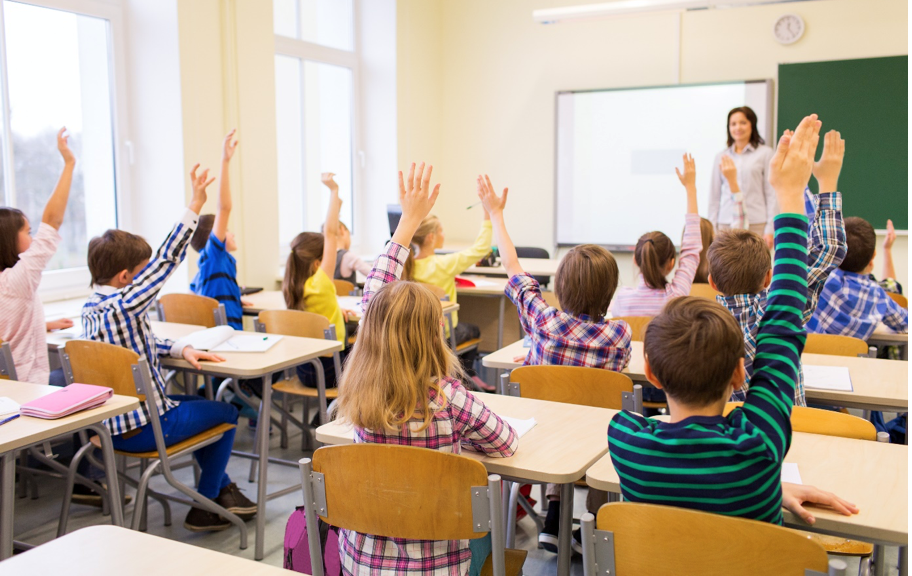By Alice Clarke
Attention problems are becoming increasingly common among students.
Statistics show that 6.4 million children aged four to 17 in the US are diagnosed with attention deficit hyperactivity disorder (ADHD). This number represents a 42 percent increase in the occurrence of ADHD over the past eight years.
Educational strategies will obviously have to be modified to accommodate the needs of these students. Helping disorganized kids and the ones that have an attention problem is all about changing the learning process to help these students focus.
Dealing with Distractions
Eliminating distractions is one of the most important prerequisites for a successful educational process. Children who have a difficulty focusing will benefit the most from a clean environment that puts emphasis on the most important tasks at hand.
Items that students can pick up and play with are a serious distraction. Very often, students will not even be aware that they're engaging in such behaviors that divert their attention away from the lesson or the study materials.
Other common distractions that it would be important to deal with include the lack of rules that ensure consistency in terms of academic performance, the prolonged focus on the same subject, seating close to windows and doors, too much external noise and a monotonous pace of the lesson.
The Importance of Simple to Follow Instructions
Students who can't focus will struggle even more if educators fail to provide concise and easy to follow instructions. These will be determining the effectiveness of the lesson, which is why teachers have to put emphasis on communicating with disorganized students in a concise and understandable manner.
There are a few things that educators can do in order to improve instruction quality.
Props, charts and visual aids are especially beneficial when it comes to explaining concepts and letting students know what you're looking forward to. Just like audio instructions, these visual materials have to be straightforward and carrying a single, unified message.
There should also be reminders about the lesson's purpose throughout its duration. Teachers can use sticky notes, a timer or even a whistle to break up the routine into small manageable chunks and simultaneously provide information about the task at hand.
When instructors notice that students are starting to lose focus, there are a few things that can be done to get things back on track. Asking students questions, even if they're not entirely related to the subject can be quite an effective approach. Making assignments shorter is also a good idea. The same applies to switching between physical and mental activities. Clear signals about changes should be provided, giving students a good idea of what would be coming up next.
How to Teach Students Focus
It's possible to teach students the skills that they need to focus. Making focus a part of the lesson isn't particularly easy but it could have a positive effect on learning outcomes in the future.
Some teachers use old-school tactics like mnemonics, for example. Alternatively, it may be a good idea to ask students to write or draw the things that they're thinking about. Once they're done, the class could discuss how such thoughts cause distractions and what could be done to overcome those.
In essence, such practices can be introduced after an instructor has carried out a sample lesson. This lesson could be used to get some feedback about the attention span of students and the issues that are causing them to lose focus.
To get a better idea about what is going on, a teacher may want to ask a couple of questions in the end of the instruction period. These could focus on the topic of the lesson, specific facts discussed during it and the part that students found most memorable. By focusing on such information, instructors can pinpoint shortcomings in the educational strategy that are mostly connected to a disorganized learning experience.
Working in Bursts
Students that find it difficult to focus will have a serious problem with long lessons that consist of the same activity. This is the main reason why learning in bursts is recommended in such situations.
Switching things up is probably the most powerful strategy when it comes to keeping students interested and engaged. Thus, good educators come up with multiple activities that can alternate between to keep the lesson dynamic and entertaining.
Shifting from one activity to another is not the same as multitasking. It simply involves the reliance on different tools to get the point across without making the lesson monotonous. A good lesson structure should be determined in advance. It could consist of a short instructional phase that teaches students listening skills, the use of multimedia like videos, group exercises and a few minutes of physical activity in between.
Working intensively for short periods of time is most beneficial for students who have focusing problems and the kids that are dealing with ADHD. Such short activities and periods of intense learning make children much more productive than lengthy learning sessions that get boring around the 10th minute.
Patience, creativity and attention to detail will be required when working with children who simply cannot focus. A standard classroom format will rarely produce the desired outcome for such students. It's very important for teachers and parents to work together on instilling the right skills. The process that starts in the classroom has to continue at home. Identifying the student's strengths and weaknesses will also be required to help them move forward without causing serious frustration (a negative emotion that will impair focus even further).
Alice Clarke works as a writer helping her lovely audience - children with useful tips. Join her on Facebook




